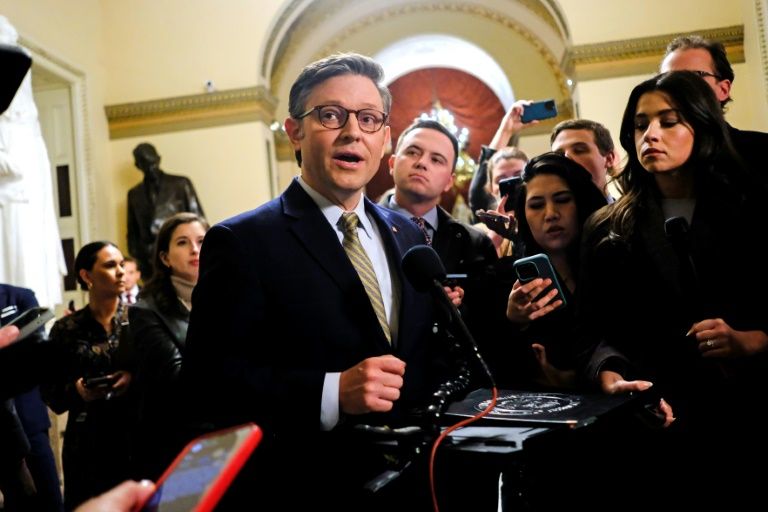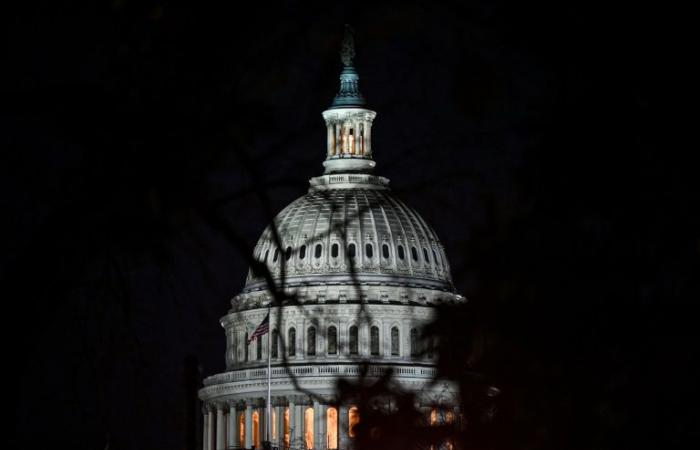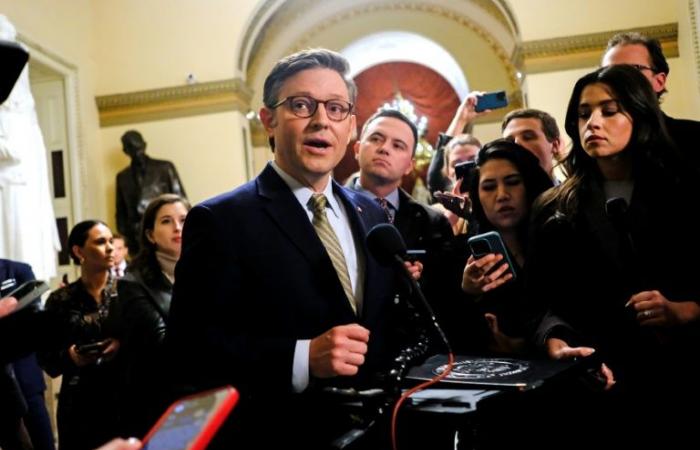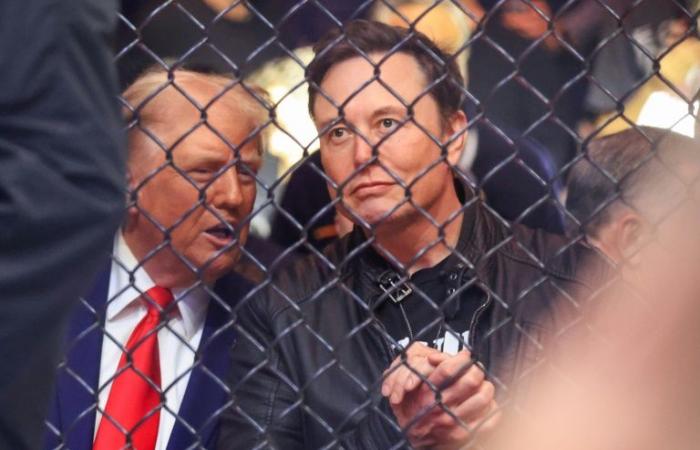The Christmas shutdown will not take place: the United States narrowly avoided a budgetary paralysis on Saturday that would have sent hundreds of thousands of civil servants home for the holidays without pay.
Ending a tumultuous sequence of several days involving Donald Trump and Elon Musk, Congress largely adopted a law which ensures federal funding until mid-March. The text notably includes more than 100 billion dollars in aid for American regions recently devastated by natural disasters.
“This is a good result for America and for Americans,” said the leader of the Democratic majority in the Senate, Chuck Schumer.
The vote took place shortly after the midnight deadline (0500 GMT). But the White House office responsible for declaring a state of “shutdown” ultimately did not do so due to the imminent adoption of the text in the Senate.
A budgetary paralysis would have meant technical unemployment for hundreds of thousands of civil servants, the freezing of social assistance or even the closure of certain nurseries. An extremely unpopular situation, especially just before Christmas.
Democrats and Republicans alike thought on Tuesday that they had avoided any saga when the Republican President of the House of Republicans, Mike Johnson, announced that the two camps had reached a consensus on a budget text.
But the Christmas spirit did not last long: Elon Musk then Donald Trump dynamited the agreement the next day.
Nipped in the bud
“Kill the text,” the richest man in the world urged elected representatives of Congress on his social network X, denouncing spending which according to him is leading America to “bankruptcy”.
The boss of SpaceX and Tesla, who became an ally of Donald Trump, was followed a few hours later by the president-elect, who castigated an “extraordinarily expensive” text.
Their opposition had nipped the bill in the bud and offered a foretaste of Donald Trump's second term, with an uncompromising style, even if it meant causing chaos, reminiscent of his first four years in the White House.

But his return to power on January 20 will be accompanied by a major difference: the omnipresence at his side of Elon Musk, a controversial figure who has only gained power in recent months.
Many elected Democrats have denounced the growing influence of the multi-billionaire, to the point of ironically speaking of a “President Musk”, to whom Donald Trump would be reduced to the role of vassal.
Main person responsible for the discussions, the “speaker” Mike Johnson was pressed on the one hand by the Democrats to return to the negotiated text, and on the other by certain elected conservatives who refused en bloc any text that did not include a budget cut to compensate for the new aid.
In view of the divisions on the right, the influential Republican elected official James Comer warned on Thursday that for Congress to adopt a text, it would be necessary “obviously to have support on the Democratic side”.
“Bazar”
The law adopted Friday does not include an increase in the United States debt ceiling, although Donald Trump opposed the first text mainly for this reason.
The president-elect had even made it a sine qua non condition for any new budget agreement, otherwise he would fight “to the end” against it.

Usually verbose on his Truth Social platform, he has remained silent on the new plan. Mike Johnson assured after the vote in the House that he had been in “constant contact” with Donald Trump and that he was “happy with the result”. The Semafor media outlet, however, reported that the future president was unhappy with the lack of provision for the debt ceiling.
Mike Johnson also said he had spoken with Elon Musk, who praised on
Each party had previously pointed the finger at the other to attribute responsibility for a possible paralysis.
“This is a problem Biden needs to solve,” Donald Trump wrote on Truth Social Friday morning.
White House spokesperson Karine Jean-Pierre said earlier Friday that, on the contrary, it was up to the Republicans “to resolve the mess they created.”
■









